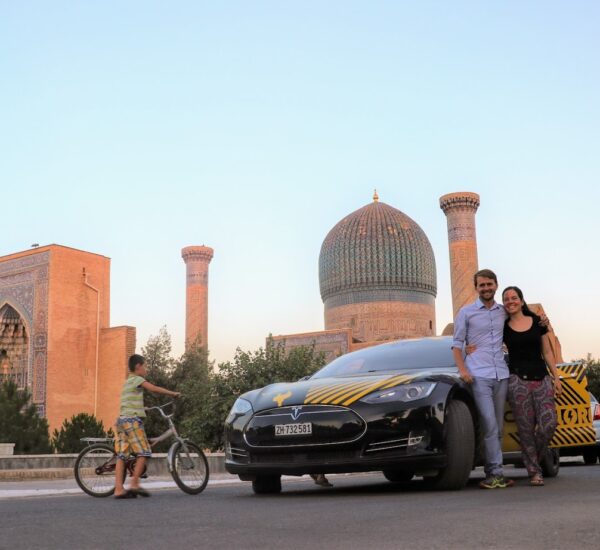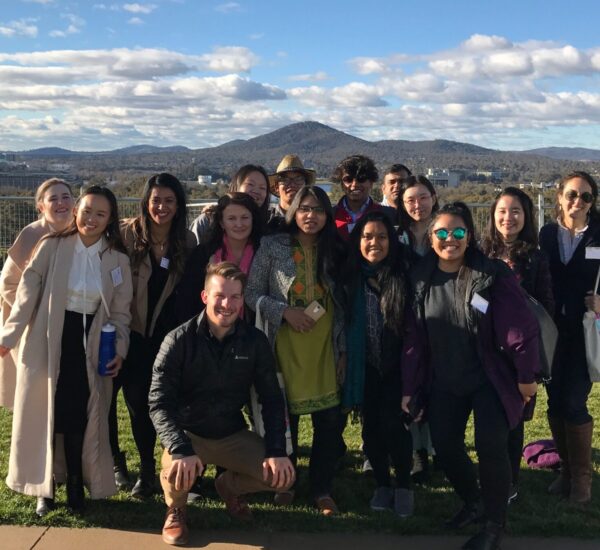RETHINKING Exploration
February 6, 2025ETH Zurich’s RETHINKING Living series recently held a talk at the academic end of the World Economic Forum in Davos for a panel discussion on exploration. As laid out by host Chris Luebkeman, Head of Strategic Foresight at ETH, “Today’s profound changes to our lives like climate change, biodiversity loss, contested democracies, global pandemics, wars and technological upheavals bring great challenges. But within them also lie powerful opportunities a chance to seek bold solutions.”

On hand to discuss how we can explore, understand and protect our planet are Sascha Quanz, Professor of Exoplanets and Habitability at ETH, historian Amanda Bellows from The New School in New York City, and Swiss explorer, psychiatrist and clean technology pioneer Bertrand Piccard.
Piccard starts off with a definition: “Adventure is when it’s the first time for you, but it’s already been done; exploration is when you do something no one else has done, or you find something no one else has.”
“Explorers are also people like Carl Gustav Jung, who discovered archetypes,” he continues. Or Henri Dunant, who was the first to see the humanity behind collecting wounded soldiers off the battlefield, eventually founding the International Committee of the Red Cross and saving millions of lives. “This counts as exploration. If someone tells you it’s impossible and useless, it’s probably exploration,” says Piccard.

The work of Quanz and his team fall under ‘find something no one else has’. “We look for planets around other stars: Are they similar to ours? There should be plenty of them, but we don’t know if they are earth-like. Earth is the only planet in the cosmos that has life on it – I checked this morning to see if that’s still true,” he laughs.
In answer to the question of whether looking through a telescope is really exploration, given that we might think space has already been nicely mapped out, Piccard speaks in defence of Quanz’ work: “Of course it is, because it hasn’t been done the way it’s been done up to now.” The panel agrees that exploration is no longer about people heading out to find an easier route to India.

Bellows explains: “We call this ‘chasing dragons off the map’,” referring to the old charts where cartographers would put illustrations of monsters at the edge of the then-known world. But while historical Europeans went off to find lands for the acquisition of resources and the exploitation of indigenous people, today’s goals are shifting towards the more commendable. Bellows says they now tend to include things that aim to be good for the planet, such as the conservation of land and animals, and be about – instead of acquiring physical goods – gaining knowledge. “I hope that is the direction [in which] we will continue to go,” she adds.
As an astrophysicist, it’s no surprise that Quanz also believes the major gain from his work is knowledge. He reminds the audience that in addition to the Hubble Space Telescope orbiting the Earth and the James Webb Space Telescope orbiting the sun, construction is ongoing on the terrestrial Extremely Large Telescope in Chile. “Having bigger mirrors means you can look at fainter objects and finer details of things,” Quantz explains.” While it’s hard to pinpoint what we humans will learn from this more detailed level of astrophysics, he assures us the findings are “going to be transformational”.

Meanwhile, Piccard’s frustration over how the world is being run in the midst of a climate crisis has motivated him to try to contribute to sustainable solutions. His new Climate Impulse project comprises a zero-emission plane powered by two tanks of liquid hydrogen. Together with French navigator Raphael Dinelli, Piccard plans to circumnavigate the globe in 2028 over nine days. Their mission is to “show that we can do much more than we think and to say ‘Stop complaining about what you see, try to do your part, bring your contribution to a better world’.” Piccard also “begs that people who believe it’s impossible would not disturb the people trying to do it”.
Luebkeman asks Bellows about lessons we should be learning from history as we go forward. She thinks the primary objectives of any explorer are key. Are they looking for fame, glory or money? The focus should be on the drive for knowledge, or better yet, getting people to work together to accomplish common goals, she believes. Self-confidence is healthier than ego.

“Robert Peary, Matthew Henson and the four Inuit men they were with, all made it to the North Pole,” Bellows explains, “but Peary took all the glory for that. It was all about him. I think that maybe isn’t the model we want in future. But I do think having confidence that you can accomplish your goals and that it’s important to try in the face of naysayers – that’s a healthy confidence that explorers in the past have had, that helped them succeed.”

Watch the recording:







